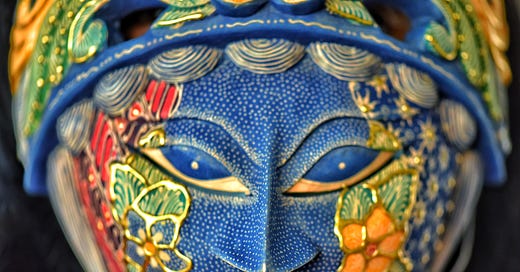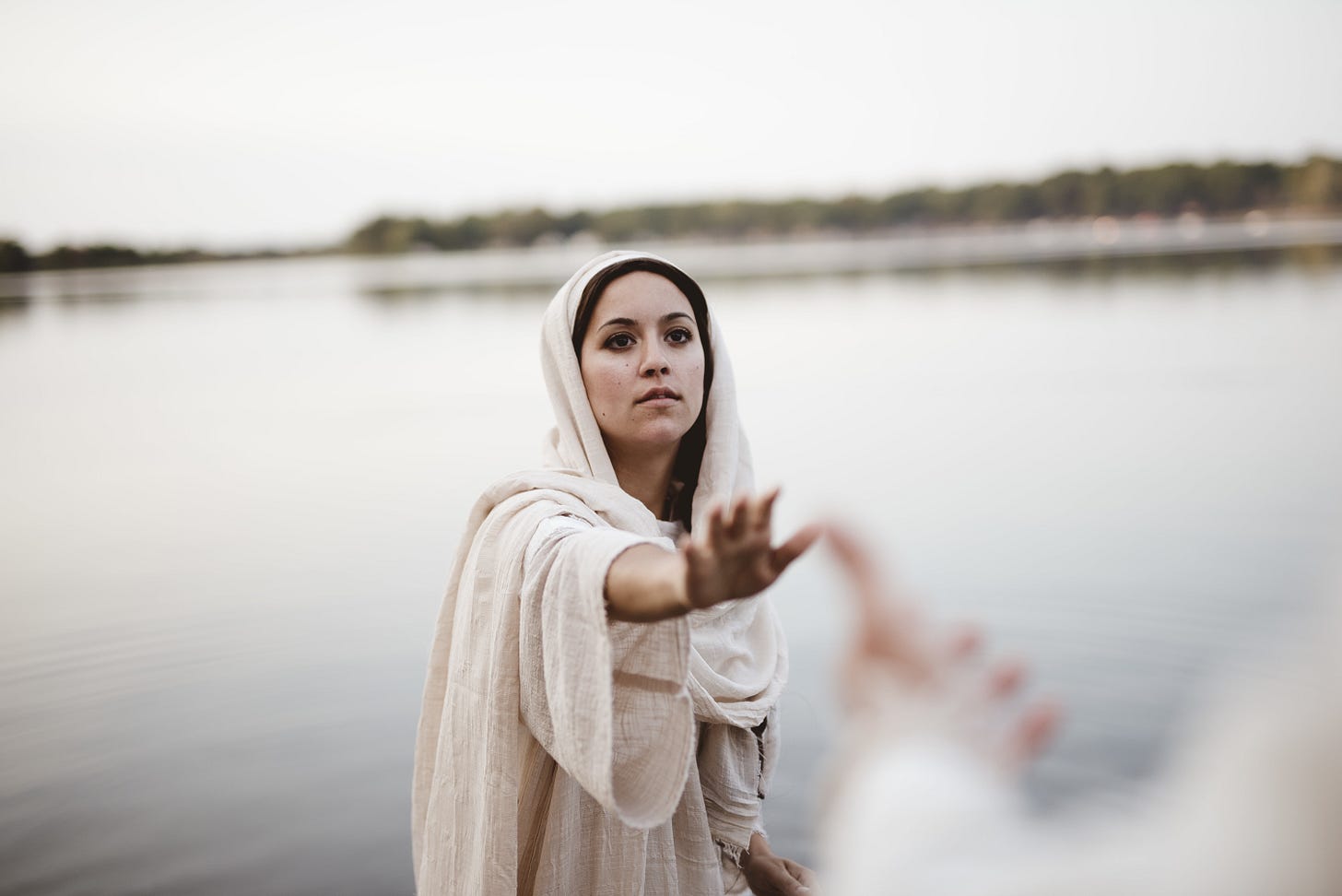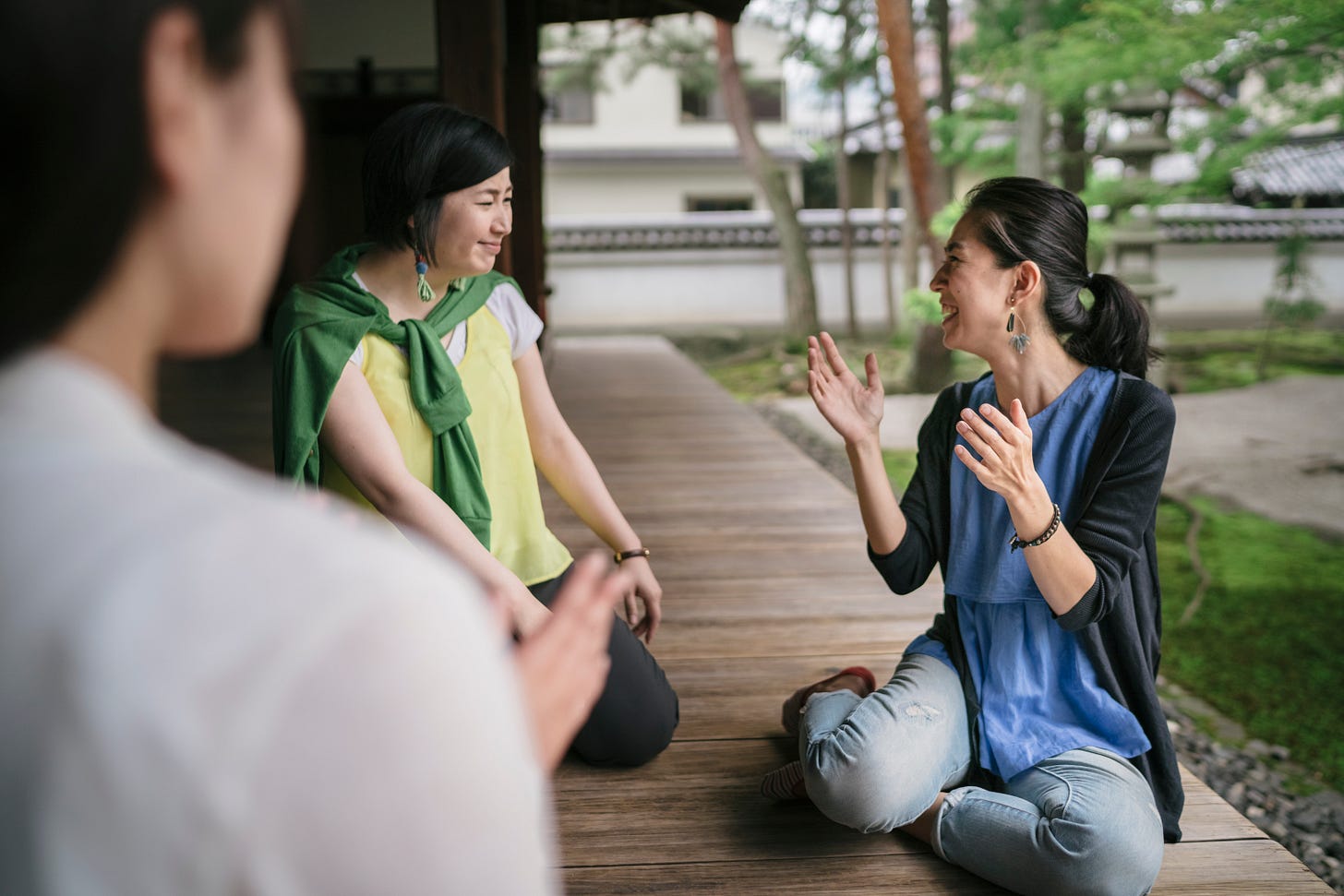When spiritual crisis strikes, our instinct is often to escape the discomfort—to return to familiar certainties or abandon the journey entirely. Yet it is precisely in staying present with our questions that transformation becomes possible. The dissonance we experience isn't a detour from the spiritual path but often its most direct route.
Finding Authenticity Through Crisis
The alchemical power of spiritual crisis lies in its ability to dissolve what psychologist Carl Jung called the "persona"—the social mask we construct to meet external expectations, including religious ones. When crisis strips away these carefully crafted spiritual identities, what emerges isn't emptiness but authenticity—a faith no longer performed for others but embodied from within.
Consider how Teresa of Avila's physical suffering accompanied her most profound mystical experiences, or how Hildegard of Bingen's chronic illness became inseparable from her visionary gifts. Their examples reveal a counterintuitive truth: our moments of greatest vulnerability often become the birthplace of our most authentic spiritual expression.
This pattern continues in contemporary spiritual journeys. Many report that their most significant growth occurred not when faith felt secure but when it was most threatened—when serious illness challenged their understanding of divine goodness, when intellectual honesty required questioning cherished beliefs, when moral awakening created tension with religious communities. These crises become crucibles where a more resilient and integrated spirituality is forged.
What makes crisis transformative is our response to it. When we resist questioning, clinging desperately to certainties despite growing evidence of their limitations, we create rigid, brittle expressions of faith. But when we approach our doubts with curiosity rather than fear, allowing them to deepen rather than diminish our spiritual hunger, crisis becomes a doorway to a more authentic spirituality characterized by:
Grounded Humility that acknowledges the mystery beyond our understanding while remaining committed to the journey
Expansive Compassion that recognizes in others' struggles the same sacred process we've experienced ourselves
Integrated Wholeness that no longer compartmentalizes spiritual life from intellectual inquiry, emotional honesty, or ethical action
Dynamic Faith that remains open to growth rather than frozen in premature certainty
Courageous Vulnerability that finds strength in acknowledging limitations rather than pretending invulnerability
Those who emerge from spiritual crisis often discover not that their faith has been destroyed but that what has fallen away are precisely the elements that were not truly theirs—inherited beliefs maintained through obligation rather than conviction, spiritual practices performed mechanically rather than meaningfully, religious identities sustained for belonging rather than authenticity.
What remains after this refining fire is a spirituality characterized less by certainty but more by integrity—one that may hold fewer answers but asks better questions, one that may make fewer claims but embodies deeper truth. The painful process of spiritual crisis catalyzes a necessary evolution from inherited religion to inhabited faith, from external conformity to internal coherence, from spiritual performance to authentic presence.
The Fruits of Boundary-Crossing
When we summon the courage to cross religious boundaries, we embark on a journey that transforms not only our individual understanding but potentially our collective spiritual landscape. Throughout history, the most innovative spiritual insights have emerged not from those safely enclosed within single traditions but from those who dared to stand at the intersections where diverse wisdom streams converge.
The fruits of this boundary-crossing journey are distinctive and increasingly essential in our fragmented world:
Experiential Recognition of universal patterns beneath diverse expressions—discovering how contemplative practices across traditions point toward similar states of consciousness, how ethical teachings emerge from shared human experiences, how mystics from different religions often describe remarkably similar encounters with divine reality. This recognition doesn't diminish commitment to particular traditions but enriches appreciation for the shared territory they illuminate from different angles.
Linguistic Expansion that provides more comprehensive vocabulary for articulating spiritual experience. Each tradition has developed nuanced language for aspects of spiritual life, particularly central to its path. When we engage across boundaries, we gain access to this rich terminological diversity, allowing more precise expression of experiences that might remain unnamed within single traditions. Consider how Western spiritual seekers have benefited from Buddhist terms like "mindfulness" that filled gaps in their contemplative vocabulary.
Creative Integration that draws from diverse sources without diluting their depth. This isn't superficial spiritual sampling but thoughtful synthesis that respects each tradition's integrity while recognizing their complementary gifts. Thomas Merton's integration of Zen insights with Christian contemplation or Thich Nhat Hanh's application of Buddhist mindfulness to Christian prayer practices demonstrate how boundary-crossing can enrich rather than compromise spiritual depth.
Prophetic Perspective that allows clearer recognition of both the gifts and limitations of each tradition. From within single traditions, cultural elements often become indistinguishable from spiritual essentials. Boundary-crossing creates perspective to discern which aspects of traditions are culturally conditioned expressions and which represent more universal spiritual insights. This clarity becomes prophetic when it helps traditions distinguish their cultural accretions from their spiritual core.
Expanded Empathy that develops through genuine encounter with different spiritual worldviews. When we engage traditions beyond our own with openness rather than defensiveness, we develop capacity for understanding perspectives initially foreign to our experience. This expanded empathy extends beyond religious boundaries to enhance understanding across other forms of difference—cultural, political, and personal.
Integrative Communities that embody new possibilities for spiritual connection beyond institutional divisions. When boundary-crossers gather, they create "third spaces" that aren't defined by single religious identities but remain open to authentic spiritual exploration. These communities become laboratories for emergent forms of spirituality that honor traditional wisdom while responding to contemporary needs.
These fruits don't emerge from casual spiritual tourism but from committed engagement that approaches different traditions with both critical thinking and genuine openness. The boundary-crossing journey requires both rootedness and flexibility—deep understanding of at least one tradition while maintaining receptivity to insights from others.
In our increasingly interconnected world, where exposure to diverse spiritual perspectives is unavoidable, these boundary-crossing capacities become essential rather than optional. They offer pathways beyond both rigid fundamentalism and shallow relativism toward a spirituality capable of both deep commitment and expansive understanding—precisely what our fragmented world most urgently needs.
Your Next Step on the Journey
If the concept of sacred dissonance resonates with your experience—if you've struggled with tension between inherited beliefs and emerging insights, if you've felt both the pain and potential of spiritual questioning, if you've sensed that your discomfort might actually be an invitation to deeper authenticity—you're not alone on this journey.
The Sacred Dissonance: 12 Stories of Spiritual Awakening, Justice, and Inner Transformation offers a comprehensive exploration of how spiritual tension becomes transformative. Through twelve remarkable spiritual journeys across diverse traditions and historical eras, this book reveals the consistent pattern through which dissonance awakens dormant gifts and clarifies authentic calling.
The book provides:
Historical Examples that illuminate how figures like Thomas Merton, Dorothy Day, and Thich Nhat Hanh transformed their spiritual tensions into profound contributions
Practical Guidance for navigating your own sacred dissonance with courage and discernment
Reflective Practices that help you recognize the gifts emerging through your questions and tensions
Community Resources connecting you with others navigating similar terrain
Most importantly, it offers reassurance that what feels like spiritual failure may actually be spiritual invitation—that the questions disturbing your peace might be awakening your purpose.
Sacred Sanctuary Getaway: The Gift Awakening™ Experience extends this journey through quarterly retreat experiences designed specifically for those navigating sacred dissonance. The Sacred Sanctuary Getaway provides physical spaces removed from everyday demands where you can:
Honestly acknowledge your questions without fear of judgment
Recognize and explore your awakening spiritual gifts
Discern the unique calling toward which those gifts naturally lead
Connect with others navigating similar terrain
The journey through sacred dissonance isn't one you need to walk alone. Visit www.mastercoacha.com/sacred-dissonance to discover how this book and these retreat experiences can support your transformation from dissonance to gift awakening to calling fulfillment.
Your dissonance isn't a detour from your spiritual journey but potentially its most direct path—not a sign of losing your way but of finding it at deeper levels than you previously imagined possible. What feels like spiritual displacement might actually be a divine invitation to a more authentic expression of your unique gifts and calling.
The gift is already awakening within you.
The calling is already emerging.
Sacred dissonance is the divine invitation to discover both.







Spiritual tensions can become transformative.💚 Thank you so much, Master Coach A, for sharing with us what Sacred Dissonance is—a new term I learned today! It’s great to know that there’s a term for a certain experience; now it doesn’t feel weird anymore.
The value of sacred dissonance offer a reassurance that what we feel a spiritual failure may actually a spiritual invitation. It’s not a detour but most likely the most DIRECT path to a deepening spiritual journey.
Indeed, let it emerge - your most authentic faith. <3